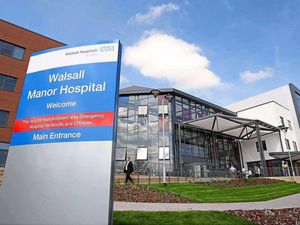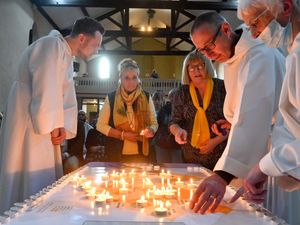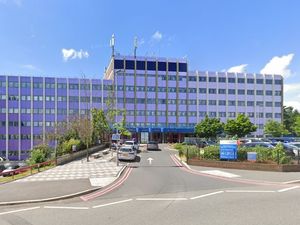Walsall hospital bosses apologise after man with HIV had surgery moved moments before operation
A Black Country hospital that unnecessarily delayed a man’s surgery at the last minute because he had HIV failed in their care, England’s Health Ombudsman has ruled.

The 48-year-old, who is from Walsall and does not want to be named, had been due to have prostate surgery at Walsall Manor Hospital on March 10, 2020.
His surgery was scheduled to be the first of the morning.
But as he was about to enter the operating room, he was told that due to his HIV status his surgery would now be moved to last on the operating list that afternoon.
The hospital claimed that this was due to the level of cleaning and infection control that would need to take place following his surgery to reduce the risk to others.
However, the Parliamentary and Health Service Ombudsman (PHSO), found that Walsall Healthcare NHS Trust, which runs the hospital, acted inappropriately and failed the man.
This is because the universal precautions that apply to all patients having surgery are enough to protect and prevent infections from spreading among patients and staff.
Therefore, no additional cleaning should have been necessary.
The policy of placing a patient at the end of an operating list usually relates to patients with a high-risk bacterial infection.
It should not be applied to a person who has HIV and is receiving treatment.
The Ombudsman also found that although the trust had made some changes since this happened, it had not done enough to make sure the same mistake did not reoccur.
PHSO recommended the trust apologises to the man and create an action plan to stop this happening again, and the trust has complied.
Rob Behrens, Parliamentary and Health Service Ombudsman, said: “People living with a long-term health condition, such as HIV, are protected under the Equality Act. This means that anyone living with the virus should not be treated differently.
“Moving the man’s surgery at the last minute because he had HIV, is not acceptable. A person with HIV deserves the same level of care and treatment as anyone else. The trust’s actions were out-dated and simply wrong, which led to a distressing experience for him.
“The trust has now put steps in place to stop this from happening again which shows how powerful making a complaint can be.
"Not only can raising a complaint reveal the truth of what happened and resolve the issue for the individual involved, it can also drive lasting change that helps others.”
The man, who has been living with HIV since 2007, said: “I expected awareness about HIV and infection control to be better in the NHS.
"Having surgery is stressful enough, but being told as I was literally at the theatre doors that it was postponed due to my HIV status just made it much worse. I felt anxious, humiliated and upset.
“I took my complaint to the Ombudsman and wanted to speak out about what happened because I don’t want anyone else to go through this.
“The Ombudsman has been fantastic but my experience at the trust has been tough.
"I never wanted any financial compensation, and I haven’t asked for any. I just want to make sure this doesn’t happen again. The stigma and lack of education, especially among health professionals, about HIV has got to change.”
The man has also been supported by the National AIDS Trust which wrote to the hospital trust to share its concern that putting patients with HIV to the end of their daily operating lists could be discriminatory.
Deborah Gold, chief executive at National AIDS Trust, said: “We’re pleased that the Health Ombudsman has made clear that the trust failed in their care in this case.
"We hope that this will lead to change and mean that people living with HIV will never again have a similar experience at this trust.
“This case shows how HIV stigma can get in the way of respectful, non-discriminatory care for people living with HIV.
"It’s essential that healthcare providers, and all organisations, make sure their policies and practices are based on up-to-date science and understanding of the needs of people living with HIV.
"Sadly this case was only escalated to the Health Ombudsman after the trust failed to change their policies, despite us highlighting the issue to them. It is everyone’s responsibility to reduce HIV stigma and that starts with being open to learning and making changes to make sure that services are genuinely inclusive spaces for people living with HIV.”
The trust has apologised and said it had been working to educate staff about universal infection prevention and control procedures.
Professor David Loughton, group chief executive of Walsall Healthcare NHS Trust, said: “We would like to sincerely apologise again to this patient for the ill-informed and inaccurate comment and his subsequent care and appreciate this would have been a highly distressing experience.
“The trust has been working with staff across our hospital and community services to educate colleagues about universal infection prevention and control procedures and continues to prioritise efforts to make Walsall Healthcare a supportive and welcoming environment for all.
“We would like to take this opportunity to thank the patient for making this complaint to enable us to address it directly and use it to inform our improvements.”





